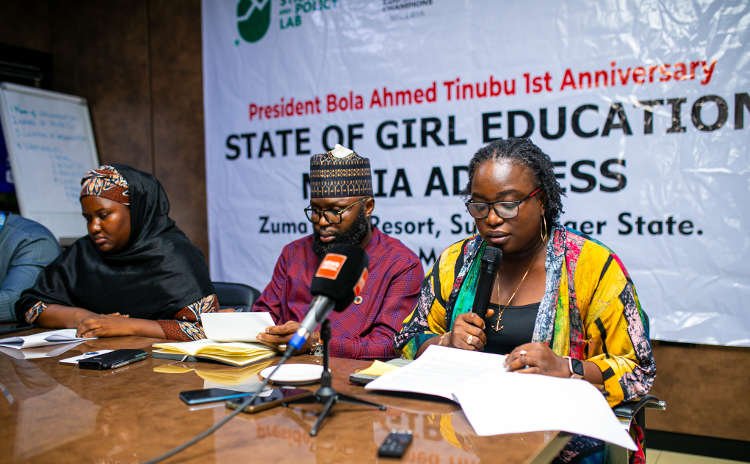As President Bola Tinubu marks one year in office, Nigeria’s education sector, especially basic and senior secondary education, requires his urgent attention.
Development Diaries reports that in its commemoration of the president’s one year in office, the National Working Group on Basic and Senior Secondary Education called on Tinubu to mobilise, facilitate, and coordinate state governors to work in tandem with his commitments to education as captured in the Education for Renewed Hope: Roadmap for the Nigerian Education Sector (2024–2027).
Some of the core challenges for the president’s attention and action include the growing number of out-of-school children, learning poverty, security and safety of schools.
At least 18 million children of primary and junior secondary age in Nigeria are out of school, according to the Universal Basic Education Commission’s (UBEC) Personnel Audit of 2021.
Among these out-of-school children, girls are particularly impacted by cultural norms, early marriage, and socioeconomic restrictions. It is no longer news that girls’ lack of access to education hinders not only their personal growth but also the advancement of the country.
Another key problem in the education sector, as highlighted by the coalition, is the significant challenge of learning poverty in Nigeria.
Recent data from the United Nations Children’s Fund (UNICEF) highlights a significant challenge in terms of learning poverty in the country, as it is estimated that over 70 percent of children are unable to read and understand a simple text by age ten.
In December 2022, the federal government unveiled the N145.8 billion National Plan on Financing Safe Schools to be implemented between 2023 and 2026.
According to the National Safe Schools Response Coordination Centre (NSSRCC), between February 2023 and April 2024, the centre prevented 118 attempted attacks on schools across the country. This is a great achievement, and the centre can do more if provided the required support.
Another issue is the underfunding of education.
At the 2021 Global Education Summit in London, Nigeria committed to spending four percent of its GDP and 22.5 percent of its national budget on education by 2025 and maintaining this by 2030.
However, out of the total N28.77 trillion in the 2024 approved budget, only N1.59 trillion is allocated to the Federal Ministry of Education, representing only 5.53 percent of the total budget.
This means that despite being the second richest country in Africa, Nigeria spends less on education than all but one (Somalia) of the ten poorest countries in the continent.
Africa’s most populous nation has the potential to become a leader in education, particularly for girls. This will not only transform lives but will have a positive impact across all aspects of society. By investing in girls’ education this term, Nigeria will be investing in its future stability and prosperity.
Therefore, President Tinubu needs to work comprehensively with the governors of the 36 states to implement the National Plan on Financing Safe Schools 2023–2026 and the National Policy on Safety, Security, and Violence-Free Schools.
He must pay special attention to the unique challenges faced by remote communities, incorporating community-based safety plans, improved security infrastructures, and consistent safety education and drills.
And with respect to security, the president must strengthen the NSSRCC, which is at the headquarters of the Nigerian Security and Civil Defence Corps (NSCDC).






